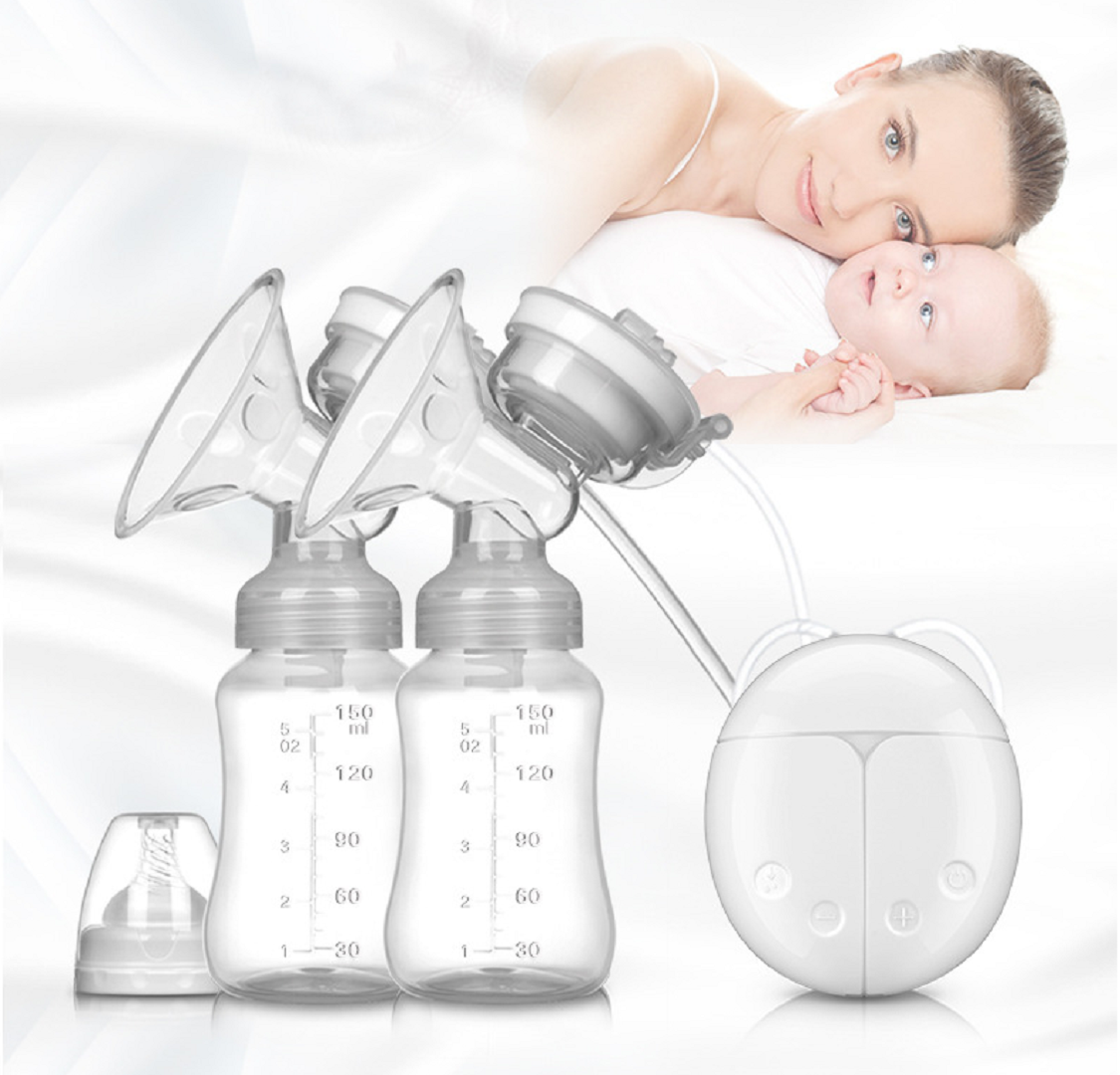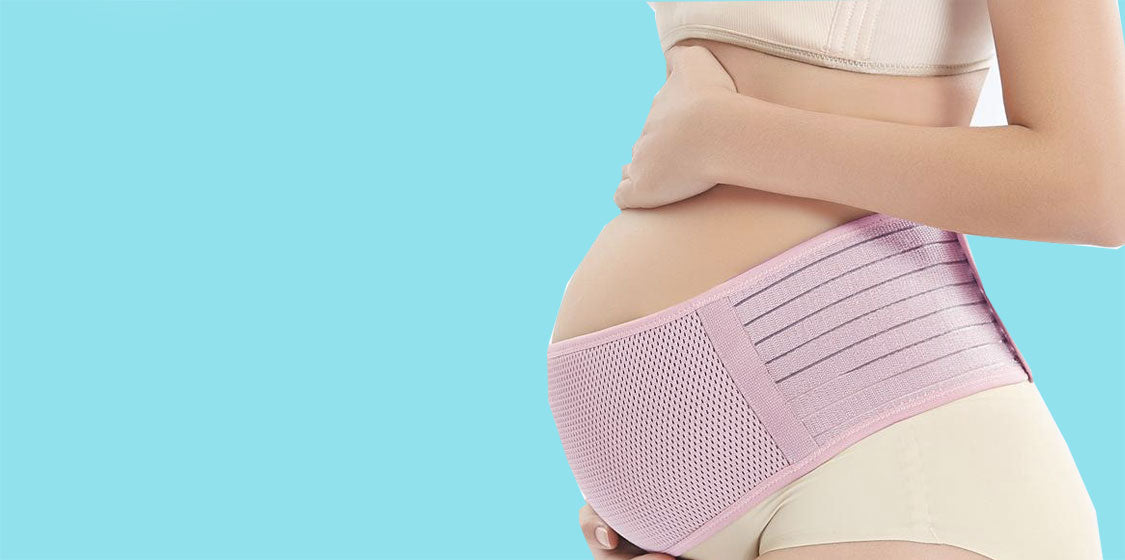Nutrition during pregnancy
Eating well during pregnancy is simple. In fact, most women will not have to change their diet. However, some adjustments are indicated. They are described here.
Why eat well during pregnancy?
Eating well during pregnancy is important because a pregnant woman's body provides the unborn baby with all the elements it needs to grow well: proteins, good fats, sugars, vitamins and minerals. The need for energy and nutrients is greater during pregnancy. Women who eat well during pregnancy contribute to the health of their unborn baby. Eating well is also very important for the woman herself. Women who eat well usually experience less fatigue and energy loss. They are healthier overall, which makes their pregnancy go better. They suffer less from gestational diabetes, and have better control if they have it. In addition, they gain the recommended weight more easily (without exceeding it) and, afterwards, they regain their pre-pregnancy weight with less difficulty.
Tips for eating well during pregnancy
Here are the most important tips for meeting your nutritional needs and those of your unborn baby: Eat three meals a day, respecting your hunger. Make up each meal according to the plate shown in your country's Food Guide.Eat two or three snacks a day if you are hungry. A snack can be a piece of fruit, a small bowl of yogurt or applesauce, a glass of milk or a handful of almonds, for example.Eat a variety of foods such as vegetables and fruit, whole grain and protein foods. Make sure you see several colors on your plate over the course of a day.Eat on a regular basis. This will help prevent energy losses during the day because your blood sugar (also called glucose) levels are more stable. Also, avoid long periods (more than 12 hours) without eating.Avoid unnecessary deprivation and dieting. This can hinder your baby's development and make you tired.Avoid highly processed foods, which are usually too high in fat, sugar and salt.Choose water when you're thirsty.Follow precautionary measures to avoid foodborne infections such as listeriosis and toxoplasmosis.
Is it necessary to eat for two during pregnancy?
For pregnant women, "eating for two" does not mean eating twice as much, but twice as well. It's true that calorie needs increase during pregnancy, but the difference is not huge. You need to pay special attention to the quality of the food you eat. Variety and color should be on the menu.
Calorie needs are greater at the end of pregnancy than at the beginning. Calorie needs for a day increase from 0 to 100 calories in the first trimester, then about What foods should I avoid when I'm pregnant?340 calories in the second trimester and 450 calories in the third trimester.
Since calorie needs increase very little at first, you may not feel the need to eat more for a few weeks. If this is the case, don't force yourself. The important thing is to eat a variety of foods, as fresh as possible.
On the other hand, the need for vitamins and minerals is very high, even in early pregnancy. In fact, "making a baby" requires at least 50 nutrients, such as iron, folic acid, calcium and vitamin B12. For this reason, it is important that you eat a quality diet.
What to eat during pregnancy? How much to eat?
A good Food Guide is simple to use because it shows what a balanced meal looks like by using a picture of a plate. The plate is divided into three parts, each with a food category. Vegetables and fruit occupy half of the plate. The second half is divided into whole grain and protein foods (examples: legumes, nuts, seeds, eggs, meat, fish, dairy products). According to the guide, fruits and vegetables and other plant-based foods are the foods that should be on the plate most often.
However, the food guide does not recommend how much or how many portions should be eaten. Rather, it emphasizes that each person must learn to recognize hunger and satiety in order to know how much food to eat.
- Fruits and vegetables
Fruits and vegetables should account for about half of the food you eat each day. One of the reasons they are at the top of the list is that they contain lots of essential nutrients (e.g., minerals, vitamins and fibre) and water.
Fruits and vegetables add color, flavour and "crunch" to dishes. Fruits and vegetables also help you gain the recommended weight during pregnancy, but not more, because they provide relatively few calories.
Ideally, eat vegetables of different colors throughout the day: green vegetables (broccoli, spinach, romaine lettuce, green beans), orange vegetables (carrots, winter squash, sweet potatoes), purple vegetables (beets, eggplant), white or beige vegetables (mushrooms, parsnips, potatoes), etc. It is best to steam or bake vegetables that you do not eat raw, or sauté them in a little olive or canola oil to better preserve their nutritional value.
Wash fruits and vegetables thoroughly with a brush under running water to reduce their content of pesticides and possible microorganisms. If you can, buy some organic fruits and vegetables. The ones to prioritize are those that contain the most pesticide residues when grown with conventional agriculture. The Environmental Working Group publishes an annual list of the 12 most contaminated fruits and vegetables and the 15 least contaminated fruits and vegetables. Organic or not, eat a lot of fruits and vegetables.
To pay less, you can buy fresh seasonal and local fruits and vegetables. You can also buy them frozen and canned (salt-free). Also, choose whole fruits rather than juices, which contain too much sugar and little fibre. Juices are also not very filling.
- Whole grain foods
Whole-grain foods include grain products and other grains, including bread, pasta, rice, quinoa, oatmeal, homemade muffins, etc. They should occupy about a quarter of your plate at meals.
Choose whole grain products because they provide energy and contain many vitamins and minerals. In addition, the fibre they contain makes digestion easier, helps prevent constipation and nourishes the good bacteria in your microbiota.
Cookies and pastries are other sources of cereal, but they contain a lot of fat and sugar and are usually made with white flour. So eat cookies and pastries in moderation. You can also bake them yourself for more nutritious versions. This way, you control the quality and quantity of the ingredients.
- Protein foods
This food group includes chickpeas, lentils and other legumes, tofu, eggs, nuts, seeds, peanut butter, beef, chicken and other meats, salmon, sardines and other fish, milk, soy beverage, cheese and yogurt.
It is suggested that they occupy about a quarter of your plate at each meal. Make sure to include plant-based foods such as legumes.
This family of foods provides protein, good fats (fish) and many vitamins and minerals, including calcium, vitamin D and vitamin B12.
Oils and fats
Use at least two different oils in the kitchen to obtain different types of fat. For example, use olive oil in salad dressings and canola oil to brown food in the pan. You can also use butter in moderation.
Preventing allergies: is it possible?
Do you or one of your children have food allergies? Then you may be wondering if they can be prevented in your unborn baby. At this time, there is no known way to prevent allergies during pregnancy. Avoiding peanuts, for example, doesn't mean your unborn baby is less likely to be allergic to them. It is not recommended that you avoid foods during pregnancy to prevent allergies. Depriving yourself of food during pregnancy can lead to a lack of valuable nutrients.
- Fish and Mercury: Recommendations
Most fish available at the grocery store do not pose a health hazard to pregnant women. However, some fish may contain contaminants, such as mercury. Mercury can cause damage to the baby's brain.
Women who are pregnant, planning to become pregnant or breastfeeding should limit their intake of :
fresh or frozen tuna, shark, swordfish and marlin to 150 g per month;
Canned albacore "white" tuna at 300 g per week (approximately two 170 g cans). Note that this does not apply to canned light tuna, another variety of tuna that is safe to eat.
The following fish and seafood can be eaten without restriction: trout (except lake trout), haddock, canned light tuna, sole, mackerel, sardines, char, herring, salmon, plaice, smelt, anchovies, pollock, tilapia, cooked oysters, mussels, clams, scallops, crab, shrimp and lobster.
What foods should I avoid when I'm pregnant?
Eating certain foods during pregnancy can pose a risk to the pregnant woman and her unborn baby (e.g., miscarriage, premature delivery, infections). For this reason, avoid consuming :
-raw or barely cooked eggs and all foods that contain them (e.g., homemade Caesar dressing);
-Unpasteurized dairy products (e.g. milk, cheese made from raw milk);
-Soft cheeses (e.g. Brie and Camembert) and semi-soft cheeses (e.g. St. Paul's) as well as blue, feta and creamy goat cheeses, even if made from pasteurized milk, because they can also transmit listeriosis;
-fresh fruits and vegetables that have not been washed;
-Raw fish and seafood, including shellfish (oysters, clams). Sushi, sashimi, tartar and ceviche made from raw fish should also be avoided, as well as smoked fish if it is not cooked or reheated (e.g., smoked salmon);
-undercooked meat, poultry, fish, seafood, including undercooked smoked or hot dog sausages that are not reheated;
-Uncured deli meats, sliced prepared meats (e.g., ham for sandwiches), pâtés and refrigerated meat spreads;
-Liver. Although it is an excellent source of iron, it contains too much vitamin A;
-Raw sprouts, such as alfalfa and bean sprouts;
Ready-to-eat foods prepared in the grocery store and left on the counter (e.g., pasta salads, cut-up chicken);
-unpasteurized fruit or vegetable juices (e.g. apple cider), unless they are freshly squeezed homemade, or with an extractor, and drunk immediately;
-alcohol.
Vegetarianism and Veganism in Pregnancy
If you are a vegetarian or vegan, you can stay vegetarian or vegan throughout your pregnancy. However, for your health and the health of your unborn baby, pay special attention to your intake of iron, vitamin B12, vitamin D, calcium and omega-3. Don't hesitate to consult a nutritionist to help you plan your vegetarian or vegan diet.
Since vitamin B12 is found almost exclusively in foods of animal origin, make sure you eat vitamin B12-rich foods every day, such as eggs, dairy products and fortified foods (meat substitutes or fortified soy beverages). If you are vegan, talk to your health care provider after you become pregnant. He or she may prescribe a supplement to prevent vitamin B12 deficiency.
During pregnancy, your iron needs are higher and your risk of anemia is higher. Be aware, however, that iron from meat is better absorbed than iron from plants and fortified foods (e.g., legumes, cereals, pasta, spinach).
To make it easier for your body to absorb iron, include a vitamin C-rich food (e.g. citrus fruits, broccoli, strawberries, melons, peppers) at every meal. For example, you can add peppers to a spinach and white bean salad and finish the meal with a kiwi. Similarly, for breakfast, you can accompany your peanut butter toast with an orange. To avoid deficiencies, your health care provider may prescribe an iron supplement for the second and third trimesters. Discuss this with him or her.
What to do if you don't have an appetite?
You may not have much appetite during your pregnancy. This lack of appetite can be caused by fatigue, hormones and, of course, nausea. Nausea is the most common problem during pregnancy.
When you lack appetite, respect your hunger to know when and how much to eat. Don't force yourself, unless the situation persists.
If you are hungry but have a poor appetite because of odours or your new aversions as a pregnant woman, simply eat the nutritious foods you crave. If you follow the principles of the Food Guide most of the time, you will be well nourished. It's not a single meal or even a special day that will put you and your baby's health at risk.
In summary :
Eating well during pregnancy is important for the healthy development of the unborn baby, but also for the health of the pregnant woman.
During pregnancy, you should not eat for two, but rather eat a variety of foods including fruits and vegetables, protein foods and whole grain foods, while respecting your hunger.
Some foods should be eaten in moderation during pregnancy, while others should be avoided altogether.
























